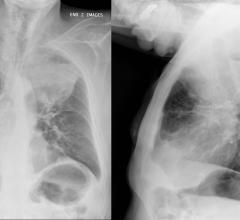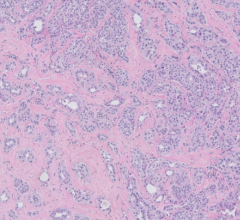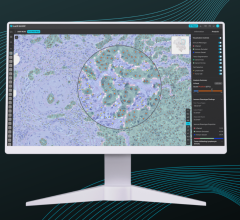Image courtesy of Elekta
Radiation therapy (RT) using high-energy particles, like X-rays or electron beams, is a common and critical component in successfully treating patients with brain tumors, but it is also associated with significant adverse effects, such as neuronal loss in adjacent healthy tissues.
In a new study, published in the June issue of Brain Connectivity, researchers at the University of California San Diego School of Medicine report that irradiation can cause broader adverse effects, altering the structural network properties in impacted brains and perhaps contributing to delayed cognitive impairments observed in many patients following brain RT.
“RT is a mainstay of brain tumor treatment,” said Naeim Bahrami, Ph.D., a postdoctoral fellow in the Center for Multimodal Imaging and Genetics at UC San Diego School of Medicine and first author of the study. “Unfortunately, a side effect can be incidental irradiation of normal brain tissue and radiation-induced injury, which have been linked to impairment of brain function. As patient outcomes improve, a major concern is managing long-term complications, including cognitive decline and disability.”
Previous research has shown that RT can affect discrete brain regions by causing cortical atrophy. In the new study, Bahrami and colleagues used complex mathematical models, such as graph theory, to look more broadly by estimating the thickness of the brain cortex in 54 patients with brain tumors before and after RT, using magnetic resonance imaging.
They found that RT produced both local and global changes in the structural network topology of the brain, thinning the cortex at a rate faster than that associated with Alzheimer’s disease, and increasing segregation between regions of the brain that typically work together to perform functions such as memory-making and recall.
Apart from adding new urgency to efforts to further refine RT and minimize adverse side effects, Bahrami said more research is needed to determine whether their topology-based technique might be useful in predicting or monitoring neurocognitive decline in patients following RT or other cancer-related therapies.
“Finding a non-invasive imaging biomarker to better assess cognitive function in the moment and in the future would be very helpful to clinicians,” Bahrami said.
Co-authors of the study include: Tyler M. Seibert and AnithaPriya Krishan, Multimodal Imaging Laboratory; Roshan Karunamuni and Jona A. Hattangadi-Gluth, Department of Radiation Medicine; Hauke Bartsch and Nikokht Farid, Multimodal Imaging Laboratory and Department of Radiology; and senior author Carrie R. McDonald, Center for Multimodal Imaging and Genetics, departments of Psychiatry and Radiation Medicine and Multimodal Imaging Laboratory, all at UC San Diego.
Funding for this research came, in part, from the National Institutes of Health (R01NS065838, UL1TR0001000, KL2TR00144), American Cancer Society (award ACS-IRG 70-002) and the American Cancer Society.
For more information: ucsdnews.ucsd.edu


 April 18, 2024
April 18, 2024 








